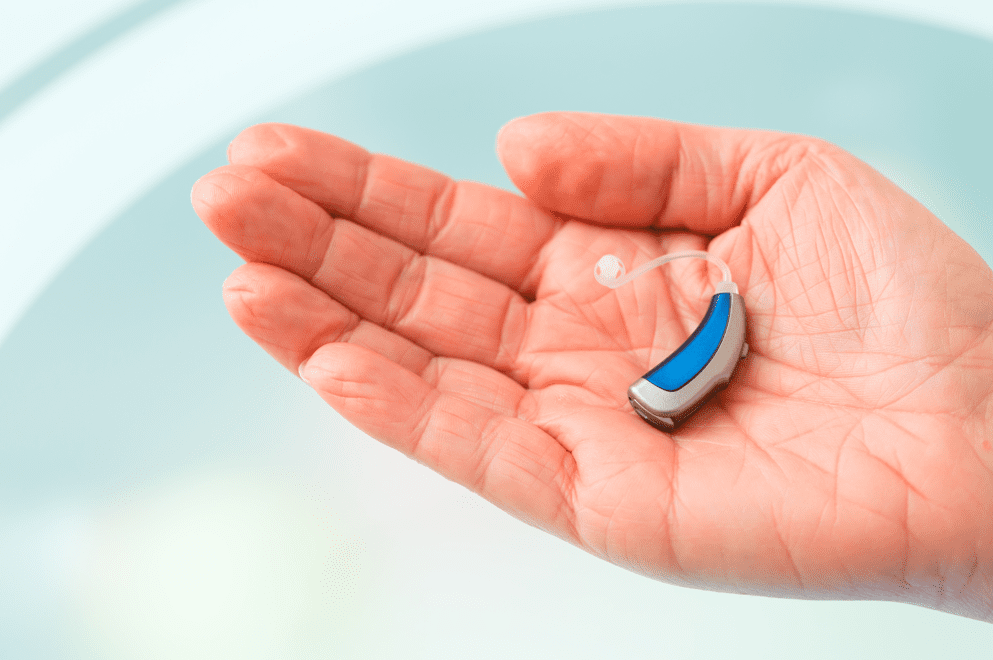The Bi-Directional Relationship Between Sleep and Hearing Health
Sleep and hearing health are closely linked in ways that might surprise

By: admin | January 16, 2023
Your hearing aids rely on batteries to keep them powered throughout the day, and at some point, that charge will run out. In the past, most hearing aids were powered by disposable batteries, but today it is much more common to use rechargeable technology. Many people opt to do this overnight while they are sleeping and not using their devices. This way the devices are fully charged and ready to go the next morning.
Or at least, that’s the idea. If you find that they are not fully charged or that the charge doesn’t last as long as it once did, there might be a problem. After all, hearing aids are meant to be worn all day, so it makes sense that the battery would actually last for many hours without having to be changed or charged.
If your hearing aid batteries do seem to be draining too fast, there could be another problem. Read on to find out what those problems could be.
The first thing that can affect the battery life of your hearing aids is the technology inside of them. Tinnitus alleviation technology is increasingly being included into hearing aids to help alleviate the effects of tinnitus for those who experience it regularly. Noises are frequently used to cover up these issues. When using a hearing aid for tinnitus, you are effectively increasing the device’s workload, which can quickly deplete the battery.
If this seems to be the case, it is a good idea to have backup batteries with you if possible so that you never have to be without your devices. It’s also essential to speak with your hearing instrument specialist (HIS) to find out what they recommend, as this is sure to be an issue they have come across before.
Even if you don’t know exactly how a battery works (or a hearing aid, come to that), one thing you’ll probably be aware of is that water and electricity don’t mix. They should just be kept as far away from one another as possible. Yet the human body contains a huge amount of moisture. It’s not just in our blood and tissue, but we sweat – it’s important that we do in order to regulate our body temperature – and sneeze and cry and much more.
All of this means that water (or at least liquid containing water) can affect the battery of your hearing aid and make it drain faster or just stop working. This happens because the vent within the battery gets clogged up, making it less efficient. It has to work harder and runs out quicker.
You can’t stop producing these elements of moisture. However, you can put some processes in place to make it less of a problem. One of these ideas is to open the battery door overnight to help it dry out (and if you’re not intending to use the hearing aids for a while, remove the batteries completely). Also, never leave your hearing aids in a humid or wet environment like a bathroom or kitchen.
One other factor to consider is the weather. Your hearing aid batteries’ performance may vary as the seasons change and cold and hot temperatures are introduced, as well as snow or humidity. Moisture issues, including leaking, swelling, and depleted battery life, are common in humid environments. However, low humidity can shorten battery life due to dryness.
Temperatures should be taken into account as well. When humidity is above 50 percent and temperatures reach between 90-100 degrees Fahrenheit, it can have an effect on battery performance. Finally, low temperatures can reduce battery life, leading to voltage drops and depletion much earlier, particularly for people working outdoors during the winter months.
There are a number of factors that can contribute to the rapid draining of hearing aid batteries. However, by taking a few simple precautions, you will be able to extract more juice out of each battery. If you are in the market for new hearing aids, you should also give some consideration to models that can be charged. After each night spent charging, you will have enough power for a full day’s worth of use. Remember though, you will need to have new rechargeable batteries installed every few years at the absolute least.
For more information about how to take care of your hearing aids and what type would be best for you, contact Hearing Well Matters on (647) 247-2704.

Sleep and hearing health are closely linked in ways that might surprise
By: admin | January 31, 2024

Hearing allows us to connect with the world around us, engage in
By: admin | December 28, 2023

Hearing aids, similar to many other medical devices, are not a
By: admin | November 25, 2023
